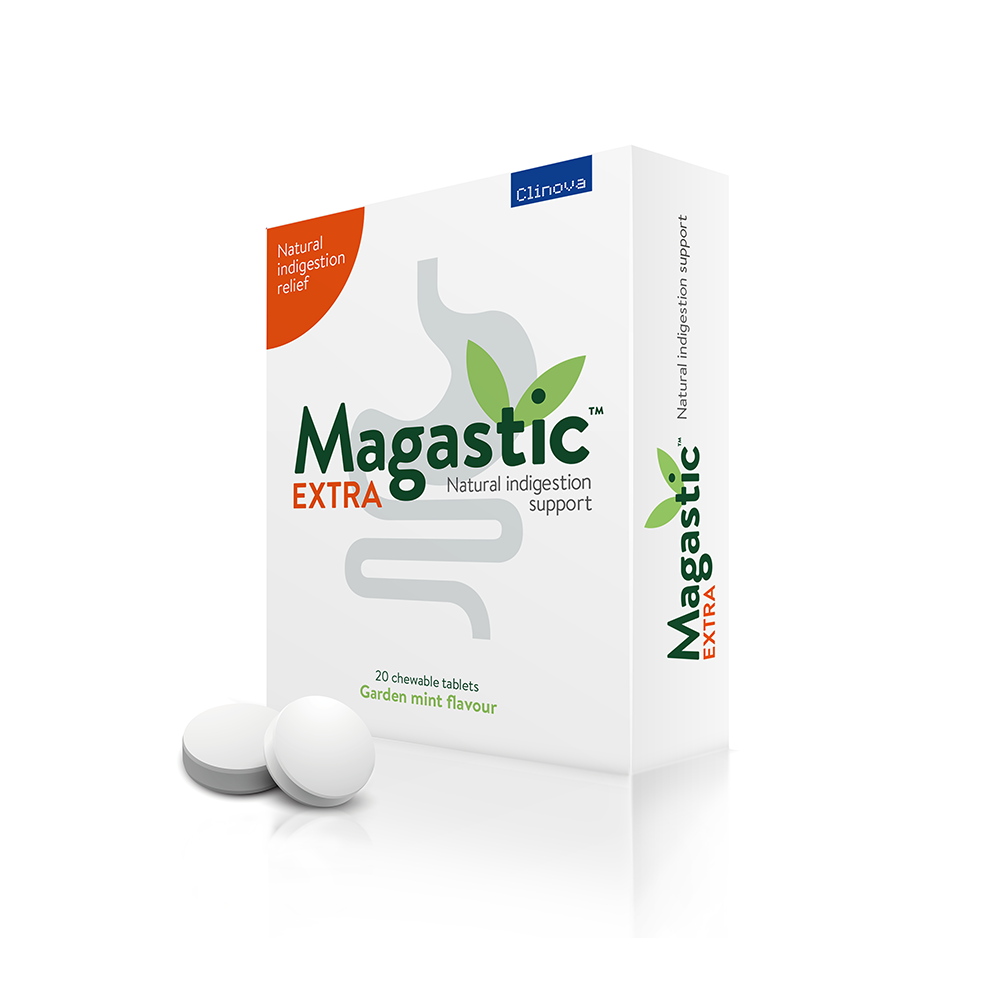What is heartburn/GORD?
Heartburn affects 1 in 5 people every week and is the most common symptom of acid reflux/GORD (gastro-oesophageal reflux disease).
When suffering from acid reflux/GORD, the acid produced by the stomach for digestion leaks up through the lower oesophageal sphincter (LES). The burning sensation associated with heartburn occurs when the escaped stomach acid irritates the delicate tissue of the oesophagus (food pipe).
What are the symptoms of heartburn?
The symptoms commonly associated with heartburn include:
- Burning sensation in the chest/throat
- Acidic taste in the mouth and back of the throat
- Nausea and vomiting
- Lack of sleep
- Loss of appetite
What causes heartburn?
As a symptom of acid reflux/GORD, heartburn is caused by anything that relaxes the lower oesophageal sphincter (LES) and allows acid to enter the oesophagus
When functioning normally, the LES acts as a one-way valve allowing food into the stomach, but preventing the contents of the stomach from moving back into the oesophagus. Relaxation of the LES leads to the reflux of acid into the oesophagus, causing irritation and the burning sensation of heartburn.
The relaxation of lower oesophageal sphincter can be caused by:
- Trigger foods/drinks, including spicy and fatty food, onions, citrus fruits (grapefruit, oranges, etc.), alcohol and coffee.
- Eating large meals, eating quickly and not chewing food sufficiently before swallowing.
- Being overweight and a lack of exercise.
- Eating late at night and lying down soon after eating can lead to night-time heartburn.
- Smoking
- Stress and anxiety has been linked with persistent acid reflux/heartburn.
- Some over-the-counter and prescription medicines can have side effects that cause heartburn.
Product Recommendation
Magastic EXTRA is a natural remedy containing a stronger dose of Chios mastic gum. Mastic gum has strong anti-inflammatory properties to help soothe the irritated tissue of the stomach and oesophagus allowing healing and recovery. Mastic gum has also been shown, even at low doses (1 mg per day for two weeks), to cure peptic ulcers rapidly (published in the New England Journal of Medicine). In addition to this, other studies have shown the H. pylori bacterium becoming increasingly resistant to antibiotic treatments. In clinical trials, mastic gum killed some of the resistant strains tested.


